Brian Goldfain
Locally Weighted Regression Pseudo-Rehearsal for Online Learning of Vehicle Dynamics
May 13, 2019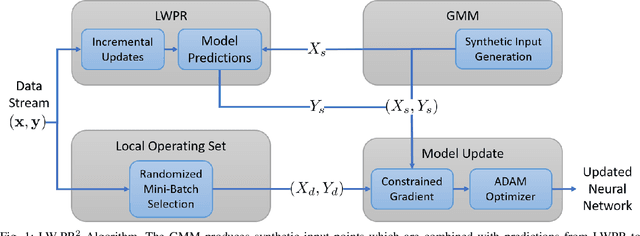
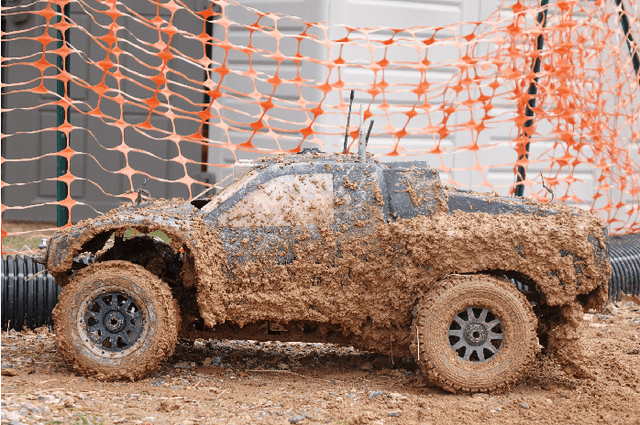
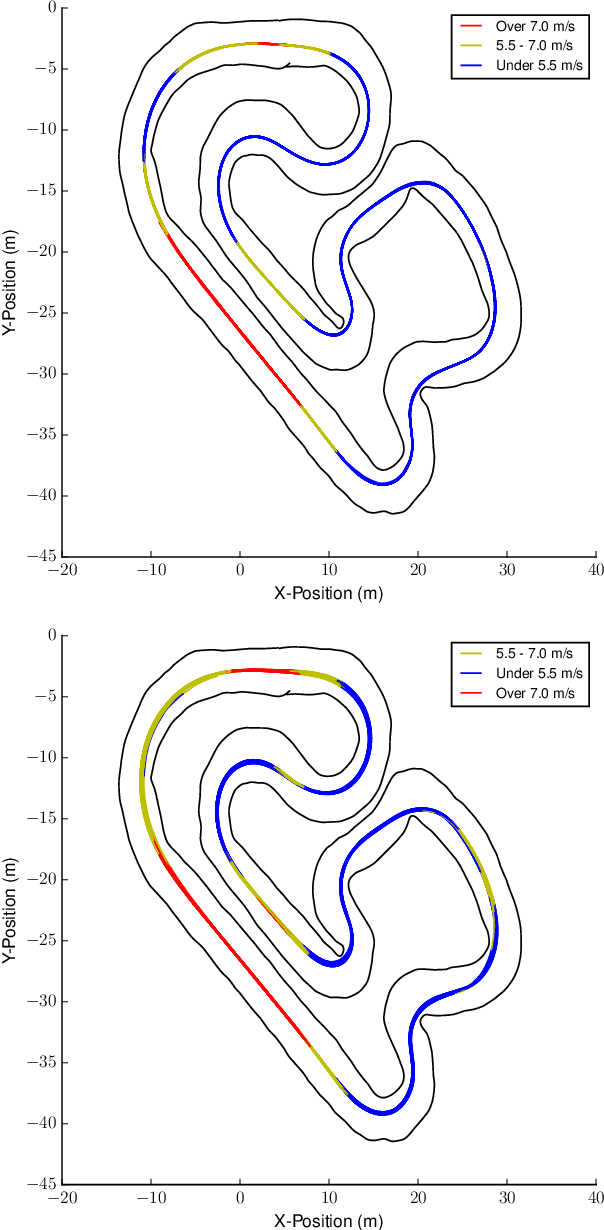
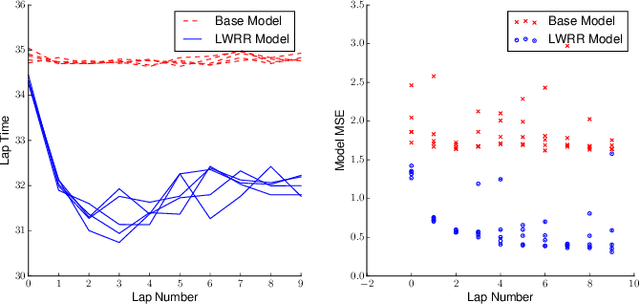
Abstract:We consider the problem of online adaptation of a neural network designed to represent vehicle dynamics. The neural network model is intended to be used by an MPC control law to autonomously control the vehicle. This problem is challenging because both the input and target distributions are non-stationary, and naive approaches to online adaptation result in catastrophic forgetting, which can in turn lead to controller failures. We present a novel online learning method, which combines the pseudo-rehearsal method with locally weighted projection regression. We demonstrate the effectiveness of the resulting Locally Weighted Projection Regression Pseudo-Rehearsal (LW-PR$^2$) method in simulation and on a large real world dataset collected with a 1/5 scale autonomous vehicle.
Vision-Based High Speed Driving with a Deep Dynamic Observer
Dec 10, 2018



Abstract:In this paper we present a framework for combining deep learning-based road detection, particle filters, and Model Predictive Control (MPC) to drive aggressively using only a monocular camera, IMU, and wheel speed sensors. This framework uses deep convolutional neural networks combined with LSTMs to learn a local cost map representation of the track in front of the vehicle. A particle filter uses this dynamic observation model to localize in a schematic map, and MPC is used to drive aggressively using this particle filter based state estimate. We show extensive real world testing results, and demonstrate reliable operation of the vehicle at the friction limits on a complex dirt track. We reach speeds above 27 mph (12 m/s) on a dirt track with a 105 foot (32m) long straight using our 1:5 scale test vehicle. A video of these results can be found at https://www.youtube.com/watch?v=5ALIK-z-vUg
AutoRally An open platform for aggressive autonomous driving
Jun 02, 2018

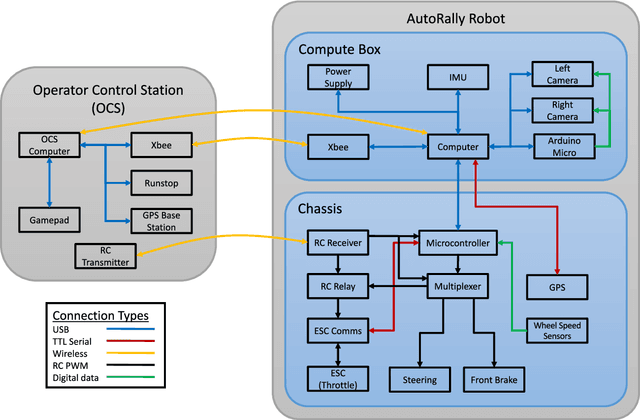
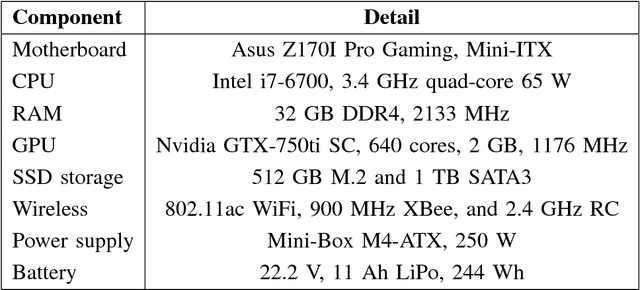
Abstract:This article presents AutoRally, a 1$:$5 scale robotics testbed for autonomous vehicle research. AutoRally is designed for robustness, ease of use, and reproducibility, so that a team of two people with limited knowledge of mechanical engineering, electrical engineering, and computer science can construct and then operate the testbed to collect real world autonomous driving data in whatever domain they wish to study. Complete documentation to construct and operate the platform is available online along with tutorials, example controllers, and a driving dataset collected at the Georgia Tech Autonomous Racing Facility. Offline estimation algorithms are used to determine parameters for physics-based dynamics models using an adaptive limited memory joint state unscented Kalman filter. Online vehicle state estimation using a factor graph optimization scheme and a convolutional neural network for semantic segmentation of drivable surface are presented. All algorithms are tested with real world data from the fleet of six AutoRally robots at the Georgia Tech Autonomous Racing Facility tracks, and serve as a demonstration of the robot$'$s capabilities.
Aggressive Deep Driving: Model Predictive Control with a CNN Cost Model
Jul 17, 2017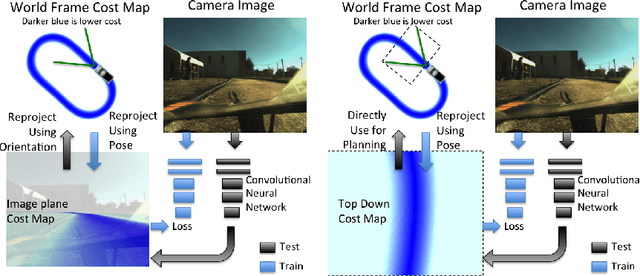
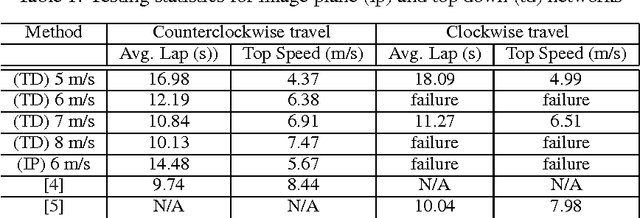


Abstract:We present a framework for vision-based model predictive control (MPC) for the task of aggressive, high-speed autonomous driving. Our approach uses deep convolutional neural networks to predict cost functions from input video which are directly suitable for online trajectory optimization with MPC. We demonstrate the method in a high speed autonomous driving scenario, where we use a single monocular camera and a deep convolutional neural network to predict a cost map of the track in front of the vehicle. Results are demonstrated on a 1:5 scale autonomous vehicle given the task of high speed, aggressive driving.
Autonomous Racing with AutoRally Vehicles and Differential Games
Jul 14, 2017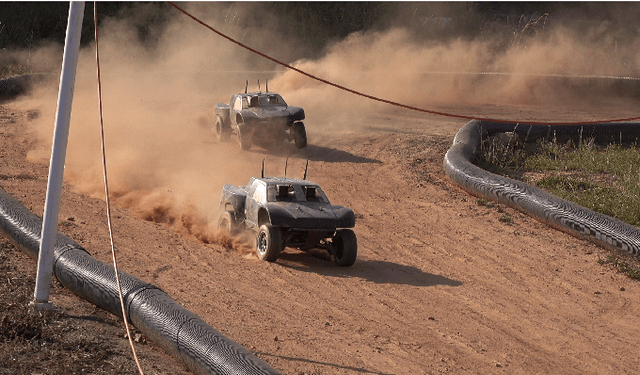

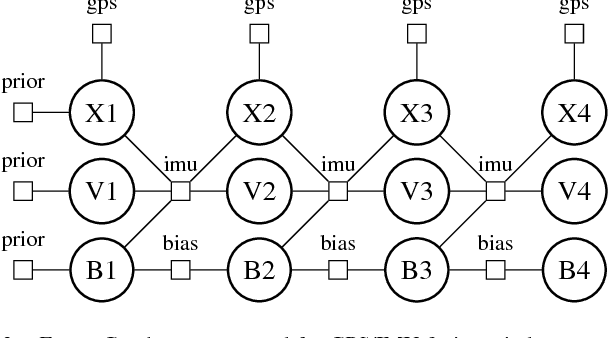
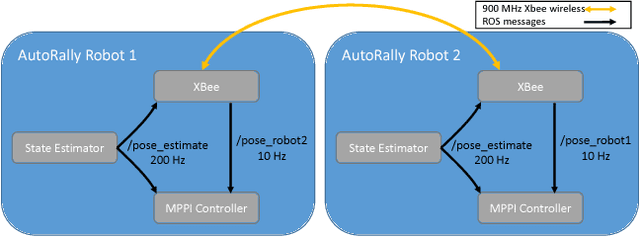
Abstract:Safe autonomous vehicles must be able to predict and react to the drivers around them. Previous control methods rely heavily on pre-computation and are unable to react to dynamic events as they unfold in real-time. In this paper, we extend Model Predictive Path Integral Control (MPPI) using differential game theory and introduce Best-Response MPPI (BR-MPPI) for real-time multi-vehicle interactions. Experimental results are presented using two AutoRally platforms in a racing format with BR-MPPI competing against a skilled human driver at the Georgia Tech Autonomous Racing Facility.
Information Theoretic Model Predictive Control: Theory and Applications to Autonomous Driving
Jul 07, 2017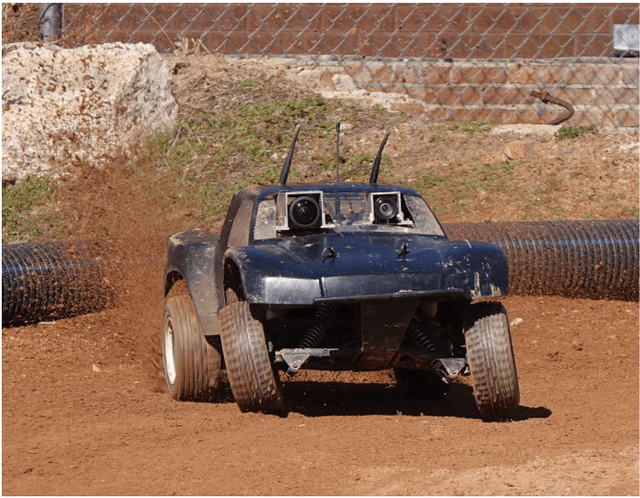
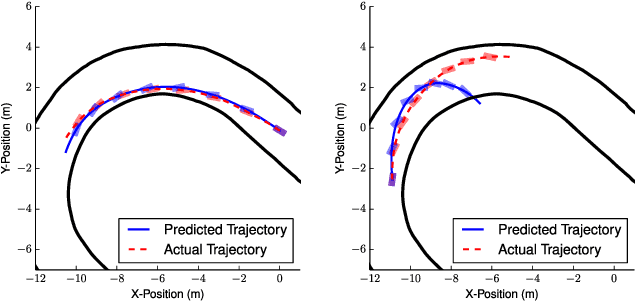

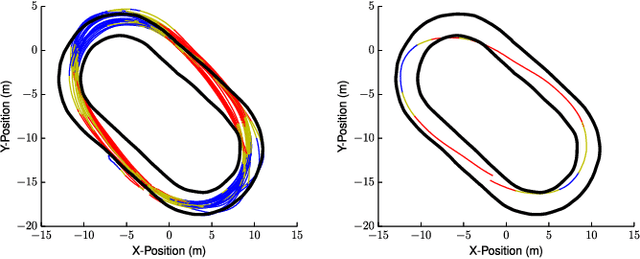
Abstract:We present an information theoretic approach to stochastic optimal control problems that can be used to derive general sampling based optimization schemes. This new mathematical method is used to develop a sampling based model predictive control algorithm. We apply this information theoretic model predictive control (IT-MPC) scheme to the task of aggressive autonomous driving around a dirt test track, and compare its performance to a model predictive control version of the cross-entropy method.
 Add to Chrome
Add to Chrome Add to Firefox
Add to Firefox Add to Edge
Add to Edge